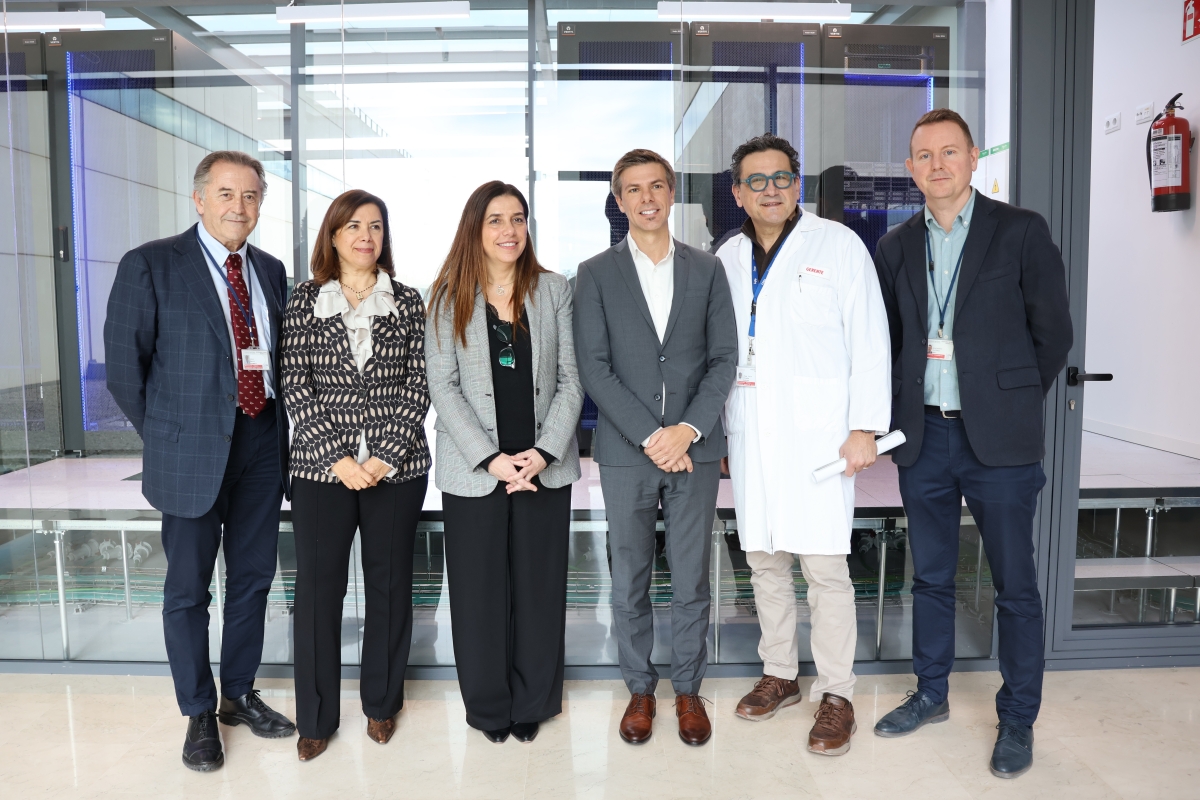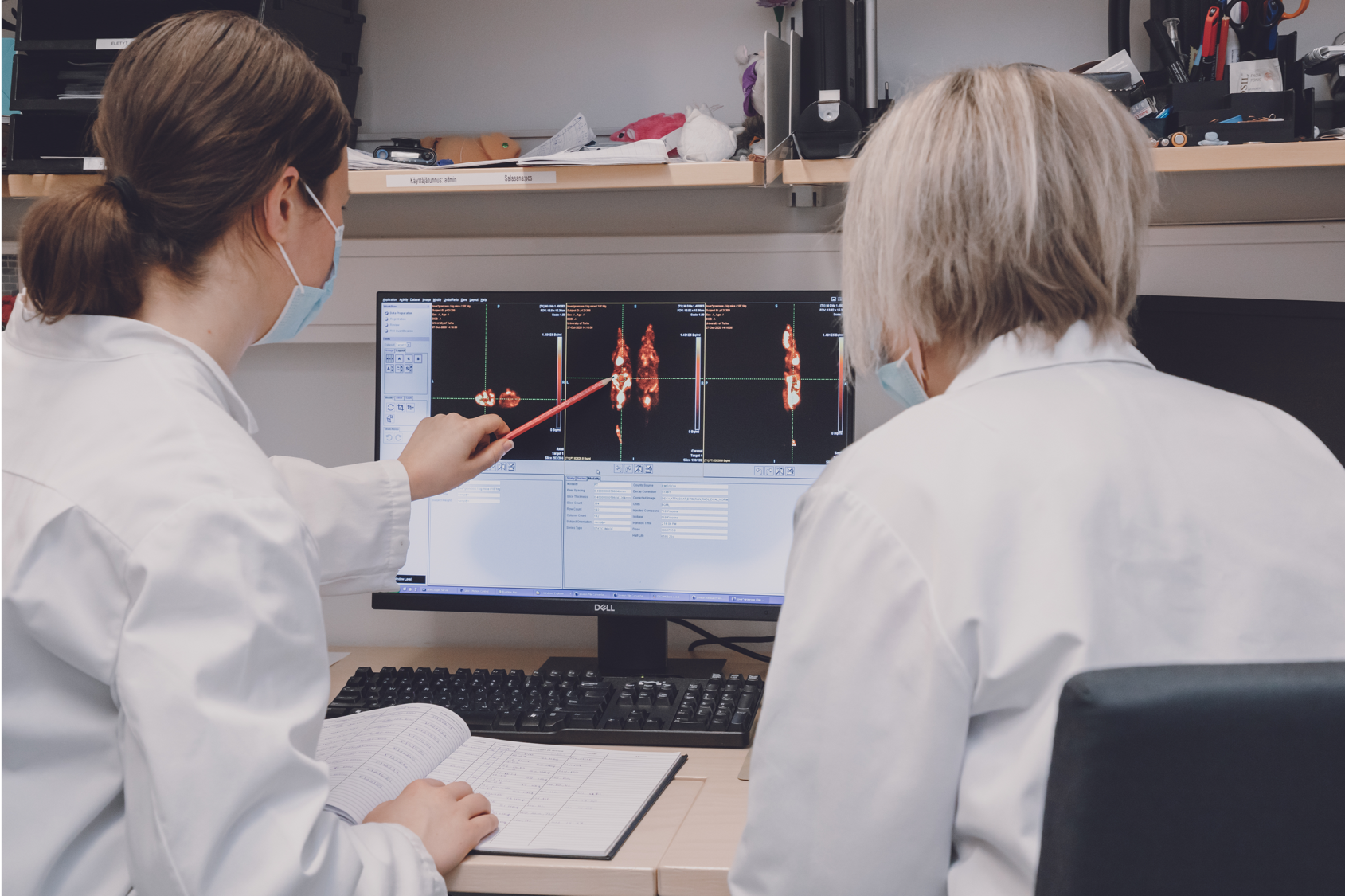
February 13, 2026
Euro-BioImaging at 3C-CoDash Hackathon
Bugra Oezdemir, our image data tools specialist from the Euro-BioImaging Bio-Hub team, had the pleasure of co-leading a session at the Data Science 3C-CoDash…
As part of our ongoing series spotlighting the talented scientists working at the Euro-BioImaging Nodes, our Scientific Ambassador Virginia Silió sat down with Andreas Bodén, Manager of the Microscopy Innovation Centre at King’s College London, part of Euro-BioImaging’s UK Node. In this interview, learn how Andreas Bodén's position at the Microscopy Innovation Centre allows him to balance his passion for technological development with his commitment to collaborative research, while shaping the future of microscopy.
Based in central London, the Microscopy Innovation Centre (MIC) at King’s College London offers access to advanced imaging technologies and expert support in experimental design, image acquisition, and image processing. Staffed by experienced microscopists, the facility provides user training, development and maintenance of microscopy systems, and welcomes collaborations with academia, industry, and commercial partners. With a dedicated demonstration and development space, the MIC is a dynamic hub for innovative microscopy across disciplines.
Article contributed by Euro-BioImaging Scientific Ambassador Virginia Silió (University College London, UK)
Andreas Bodén began his role as Manager of the Microscopy Innovation Centre in July 2024. With nearly a year in post, he brings a strong background in advanced optical microscopy and a clear enthusiasm for both technological development and collaborative research.

With a foundation in engineering and a PhD in super-resolution microscopy development, Bodén’s expertise spans optical design, hardware control, image formation theory, as well as image processing. He has worked extensively with reversibly switchable fluorophores and structured illumination techniques.
“I wanted to explore a different part of academia—one where I could continue using my technical background but also grow by interacting with users and take on leadership responsibilities. Managing the facility has allowed me to do both.”
-- Andreas Bodén, Manager of the Microscopy Innovation Centre, King's College London
“At our facility,” he explains, “we offer technologies such as fluorescence lifetime imaging microscopy (FLIM), two-photon microscopy, and single-molecule localisation super-resolution. We also offer different light sheet systems tailored to different applications, on both a permanent and temporary basis." While his technical experience is extensive, Bodén is increasingly focused on how these methods apply across the life sciences. “I’m learning more about different applications and how to match them with the right technologies. It’s about pairing researchers’ needs with the most suitable tools.”
Although Bodén’s background includes hands-on development—particularly in super-resolution microscopy—what he now finds most rewarding is engaging with users. “It’s exciting to meet researchers from diverse fields, understand their biological questions, and help identify the technologies that could support and advance their work. That’s where meaningful innovation often begins.”

This collaborative environment is strengthened by the broad expertise within the department.
“I’m fortunate to be surrounded by colleagues with deep knowledge across both technical development and applications, which creates a dynamic and supportive setting.”
Reflecting on some of the more demanding projects he has undertaken, Bodén describes the complexity of designing and implementing optical illumination patterns for structured illumination microscopy.
“Creating interference patterns that are both precise and stable is highly complex,” he says. “It demands rigorous optical design and careful control over illumination intensity—especially when working with switchable fluorophores, where full flexibility and precise control are essential for the system to perform as required.”

Bodén’s journey began with a master’s degree in biomedical engineering, followed by a PhD focused on the development of super-resolution techniques. He remained in the same lab for a postdoctoral position before transitioning into facility management.
“I wanted to explore a different part of academia—one where I could continue using my technical background but also grow by interacting with users and take on leadership responsibilities. Managing the facility has allowed me to do both.”
Looking ahead, Bodén sees the Microscopy Innovation Centre continuing to evolve as a hub for cutting-edge research and technology development. “My hope is that we continue building our role as a centre for microscopy innovation—one that supports both collaborative projects and technology development.” For him, it’s about maintaining a balance: ensuring consistent day-to-day support while also pushing forward with innovative initiatives.
“We need to evolve our technological offering in line with the needs of our users and the broader life sciences field. The aim is to provide systems that support a wide range of research applications, while remaining adaptable and sustainable.”
As for his own future, Bodén is optimistic about the growing recognition of the essential role technical professionals play in academic research. “I hope to stay closely connected to developments in the field and continue working at the interface between instrument development, industry partnerships, and user engagement.”
He also acknowledges the increasing institutional support for research technical professionals.
“At King’s—and across the UK more generally—there’s real momentum building around defining clearer career paths for technical staff. Initiatives like the Technician Commitment and the Institute for Technical Skills and Strategy (ITSS) are making a real difference in supporting this kind of career progression.”
With a strong technical foundation, a collaborative outlook, and a forward-thinking approach, Andreas Bodén is helping to shape the future of microscopy and broaden its impact across life sciences and interdisciplinary research.

February 13, 2026
Bugra Oezdemir, our image data tools specialist from the Euro-BioImaging Bio-Hub team, had the pleasure of co-leading a session at the Data Science 3C-CoDash…

February 12, 2026
The IIS La Fe (Instituto de Investigación Sanitaria La Fe) in Valencia, hosting the Euro-BioImaging Radiology and Medical Imaging Valencia Node, has inaugurated…

February 11, 2026
Today is the International Day of Women and Girls in Science. And tomorrow. And the day after that. The images below show our everyday.